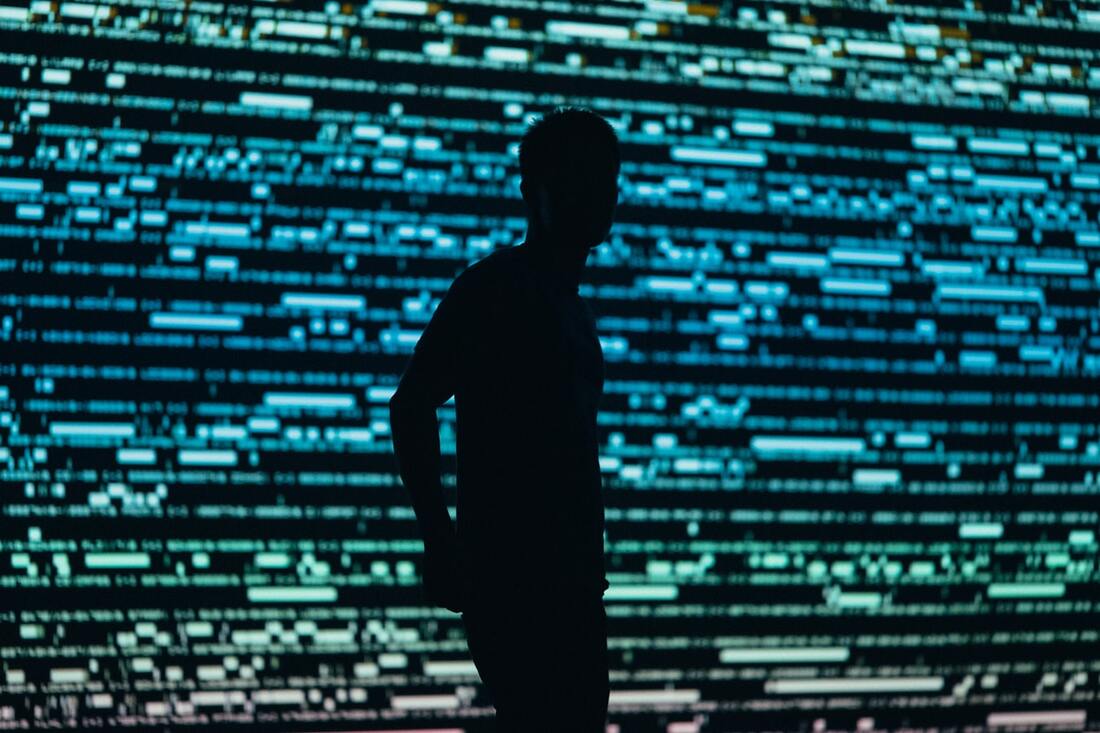 The coronavirus has caused strong emotional reactions in almost everyone, literally worldwide – from worry, in its mildest form, to fear, to outright panic among many. No corner of the earth appears to have been spared, this is indeed a global event that is affecting people indiscriminately. When it comes to being scared, I am no exception. The immediate and main concerns are health-related, amplified by the fact that we still know much too little to determine exactly how contagious and how deadly this virus may turn out to be; the go-to reference appears to be the Spanish flu from a hundred years ago that killed 500 million people. Following close behind are all worries tied in to the direct impact on economics and finances. The reference for this angle appears to be the Great Depression from the 1930’s, another stomach-churning comparison that makes most of us want to hide under a rock. But the truth is - neither one scares me quite as much as the long-term consequences this outbreak is likely to lead to. Disconnection First, as many have pointed out already, we need to stop calling it “social distancing”. Social is what we want to be; physically close is what we are trying to avoid. That said, we’ve been at this for a while, what with technology and all of today’s virtual realities. Kids would rather play with each other in cyber-world, each in their own rooms, than play outside where they can develop the art of reading body language, interpreting facial expressions and tone of voice, of being able to communicate while looking people in the eye - you know… social skills. Teenagers are increasingly staying home, watching Netflix and messaging with friends rather than going to catch a movie and hanging out afterwards, socializing. Adults, rather than physically going into stores, are shopping more and more online, thus missing out on that spontaneous conversation with the cashier, a stranger, or an acquaintance. Texting has replaced phoning, because… why really? Nobody ever has a good answer. It takes longer to type than talk, plus talking gets you an immediate response and an actual exchange. Another spontaneous, intuitive experience going the way of the dodo bird. With this virus, we are not only being encouraged to communicate virtually and to avoid disease by keeping a safe, healthy distance - we are being made to fear any physical proximity, or worse yet, actual contact. It’s only been a couple of weeks, and we already see hand-shaking and double-cheek kissing differently than we did a month ago. What impact will this have when the message persists over the next few weeks and months? Will we ever go back to instinctive physical contact? The result I worry about is the ultimate disconnect between people. Our strength, as a humanity, lies in that very connection, the one that springs from closeness and unprompted exchanges of ideas and human reactions that are as unique as the people involved. Our unity is our greatest asset in the face of any harm that may befall us, and the powers that be have nothing on us if we are bonded to each other. But if we are scattered and disconnected, we are more easily divisible, and conquerable. And it seems that we are being encouraged to go that route step by step, and it’s being sold to us under the guise of convenience, and, more and more, personal safety. Long-term economics But then one has to wonder - will shopping in person even be much of a thing anymore? What will be significant during this particular economic crisis will be the eradication of small businesses. I fear most of them will not recover at all, and among those who do, the question is whether or not they will want to bother rebuilding. Restaurants, bars, mom and pop stores, the local hardware place, the flower shop, the market - many will disappear, and the customers won’t have a choice but to go to the already existing, and more solidly established corporations. Or shop online. It’ll be a world owned by Amazon and those few who can make the rules, with no competition to worry about. Giants against which nobody has a chance. Surveillance and tracking Telecommunication companies in certain European countries have already agreed to share data with health authorities, thus providing them with the ability to track individuals who are supposed to be self-isolating. Canada has not ruled out the possibility, and it’s hard to imagine the US not following suit. What a wonderful, and perfectly legitimate way to violate people’s right to privacy. The question becomes – once this line has been crossed, how do you uncross it? Do the authorities, one morning, just relinquish this privilege and hand people back their privacy because the threat is now over? Of course not, because the next threat is right around the corner. One need only recall the Patriot Act that was rammed through following 9/11 and was supposed to last as long as the “terrorist threat”; instead, it has been renewed, time and again, and remains in effect to this day, 18 years after the events took place. In China, thermal scanners were used in public during the pandemic – taking the temperature of individuals at trains stations, for example, with authority figures taking aside any passenger with above-normal body temperature and testing them for the virus. China is now considering upgrading to facial recognition technology for the same purpose, further expanding on its already massive surveillance system. The US are not far behind. An Austin based technology company is launching "artificially intelligent thermal cameras" and planning on installing them in grocery stores, hospitals and airports for detection and reporting purposes. If you didn’t already feel like you’re under the microscope, this should right about do it. And if you think the line will stop at this coronavirus in terms of tracking… well, nobody actually thinks that. So where does the surveillance end? Why stop at cameras and having your phone data accessed when you can just be microchipped and offer yourself up on a silver platter? It’s not utopian. Many people are already on board and getting it done. Thousands of Swedes have voluntarily signed up for this. Something about the convenience of being able to unlock your car door without a key, no longer needing any physical ID and an ability to carry out financial transactions without a wallet. Meanwhile, back in North America, the current pandemic has opened the door to the elimination of money. In an effort to limit the exchange of hard cash and the germs that are thusly transmitted, certain stores have begun refusing actual coins and paper bills, and there have been rumblings about encouraging a cashless society via the creation of digital currency. This is yet another way for every transaction to be tracked. I can already hear it – who cares, as long as you’re not laundering money, selling drugs or buying on the black market. But again, it’s about privacy. If I don’t want on record that I paid for a certain medicine at the pharmacy, or that I’m seeing a shrink, or preparing to leave my abusive husband, or sending money back home to my cash-strapped family – then that is my business, and I have a right to keep these things private. They are nobody’s business. A few days ago, the US President signed into law the “Secure 5G and Beyond Act of 2020” to develop and roll out the 5G network as soon as possible despite the dangers of 5G still being very much an issue. 5G is known to substantially increase exposure to radio frequency electromagnetic fields; the health implications for humans and potential damage to the environment are being completely ignored. But in the official name of keeping everyone connected (and the unofficial one of being able to better track everyone), this bill is sailing through without even a peep from the peanut gallery. Loss of rights And if you think your choices and options have taken enough hits, how about this one? Denmark has already passed a law allowing health authorities to force individuals not only to be tested for the virus, but to be vaccinated as soon as the vaccine comes out. Never mind that in a perfect world, a vaccine would be tested above and beyond security measures and guaranteed to be fully effective and without potentially hazardous effects – this one is being fast-tracked, skipping steps and taking shortcuts along the way, in an effort to have it available more quickly than any other vaccine would ever be authorized to see the light of day. And you won’t have a choice but to take it. Let that sink in for a second. Of course, most people will be clamoring for this injection, so while anxiety levels are still running on high it probably won’t encounter much resistance. But a) it still overrides the personal choices of those who would rather not, b) it sets a precedent and c) it will likely encourage other countries to do the same, and for a much wider range of diseases. I can see a day when you won’t be able to leave your country or have access to services unless you can prove you’ve had a series of vaccines. A new world The reach, and impact, of these measures is enormous, and just like after 9/11, as we absorbed it all in a state of trance, they are being put in place without being questioned. There will be more and more laws allowing for quarantines. Regardless of how this virus originated, and whether the developments were natural or the result of an experiment gone horribly wrong (or, worse yet, exactly as predicted), those in power are watching intently, and seeing what exactly they can get away with in terms of restrictions given the right dose of fear, constantly driven home by the media hype. And they are discovering just how easy it is, and how quickly people are willing to trade in their liberties for a sense of security. The way I see it, this was a test. A rehearsal of sorts. For what? Who knows. I don’t dare imagine.
0 Comments
Your comment will be posted after it is approved.
Leave a Reply. |
Sandra JaySandra is a blogger, life coach and activist. Archives
May 2023
Categories
All
|
Site powered by Weebly. Managed by Web Hosting Canada

 RSS Feed
RSS Feed